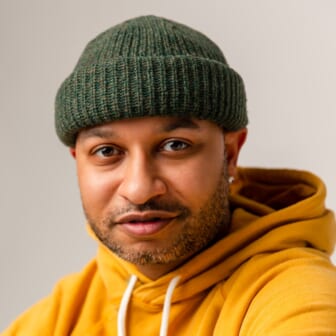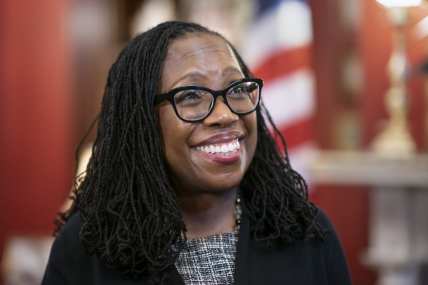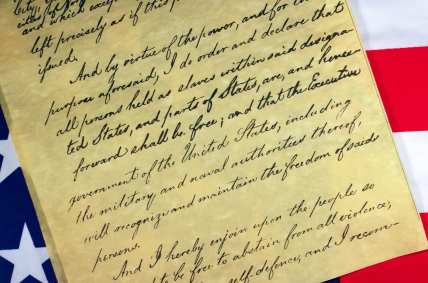Charmaine Wilkerson’s best-selling book ‘Black Cake’ is a stark reminder of how important sharing family history can be
OPINION: The book, released in 2022, is a story about identity and family, and for me, shed a light on just how much information about family and identity I’ll never have.

Editor’s note: The following article is an op-ed, and the views expressed are the author’s own. Read more opinions on theGrio.
2022 was a pretty devastating year for my sister and me. We lost my mother in February, and then my grandmother passed away in September. The physical losses alone are earth-shattering, but they also represent an even more significant loss: a loss of family history.
My family on my mother’s side isn’t particularly close. There are many family divisions and for various reasons — some interpersonal, some seemingly hereditary — that side of my family has often struggled to hold itself together. I’m sure there was always some form of love present all around, but it felt like a family burdened by the struggles of being a sometimes impoverished, immigrant family and all of the ills that came with that. I think, without a shadow of a doubt, my mother “made it.” She overcame some fairly significant obstacles and circumstances to successfully live out her version of the middle-class American dream — until her health gave out and robbed her of the ability to do the simplest activities of daily living until eventually, she died at age 65, a few short days after her birthday. Even now, almost a year later, that sentence is still difficult to write.
The lack of closeness on my mother’s side means that we don’t gather much as a whole, and I’d say we talk even less than that. I would exchange letters with my grandmother often and when I’d visit Michigan — a visit that became less and less frequent as my mother would come to see me in Washington, D.C. to visit with her grandbabies — I’d try to go see her. On those rare, short visits I’d usually see two of my living uncles (one of my uncles passed away in 2004; another lives in France) and maybe my aunt, assuming anybody knew where to find her. At some point in each visit would be some discussion about the past and their move from outside of Metz, France, to the suburbs (and exurbs) of Detroit, Mich. But it never got too far.
One day, I wrote my grandmother a letter telling her that I wanted to sit down with her to talk about our family history. My mother didn’t think my grandmother would be up for it; she felt like there was so much in our family that nobody talked about that my grandmother wouldn’t be interested. But my grandmother was interested; she was also excited that one of her grandchildren took an interest in our family history. I assured her that on one of the trips I’d come up with recording equipment, and I wanted to know everything she was willing to share. On a few phone calls, she’d tell me about my mom’s time as a child or our family in Germany and France, including an aunt who spent time in a concentration camp as a Jewish sympathizer during World War II, something that sparked my mother’s intense interest in the Holocaust.
But I don’t remember most of what she said. And she passed away before I sat down with her, which is my fault; I should have gotten up to see her as soon as I had the idea, but COVID. My mother didn’t love talking about her childhood, whether in France or in America and based on what my uncle told me, she had a really rough go at it. So I didn’t get her on tape either. Essentially, an entire half of my family history is missing, potentially lost and never recovered. When I’m speaking to my children about where our family comes from, I have very limited knowledge to pull from. I only just found out where my mother was actually born when she passed away, and I was working on the funeral program. I had never even heard of the town, but she went to school there until they moved — entirely new information to me. And I fear all the things that lend perspective and identity may be lost.
Charmaine Wilkerson’s book “Black Cake” is a story about identity and facts and history that could be lost if and when the person with all the information perishes. In this book, Eleanor Bennett is the family matriarch who does, in fact, pass away, but before she did, she left a voice recording and letters to her kids that tell her who she really is and where she comes from and how her family came to be. It has twists and turns and some fairly fantastical moments, but the fact is, before she passed, she made sure that her children knew who they were and where they came from. She left them with their family history, for better or worse, and it informed the paths they led (and why) and helped clear a way for where they’d go in the future. The entire time I was reading this book I kept thinking about the passing of my mother and grandmother and what information I never thought to get from them and what that means for my children and the legacy I can leave behind for them.
As Eleanor spoke through recording to her children, Benny and Byron, I thought about how much I’d love to have had something similar — likely with less scandal — from either my grandmother or mother. Clearly, my mom or grandma didn’t have anything as pressing as Eleanor did to get off her chest, but in telling about her life scandal, she had to explain who they were, where they came from and why certain traditions are, well, traditions. That is something I don’t have and likely never will. I mentioned that I do have living uncles and an aunt, but I also mentioned family divisions, and I’m just not sure how much information I’ll ever get save for pictures I have that tell me a tiny part of our family story.
That lack of familial, institutional knowledge (as it were) has inspired me to make sure my kids don’t end up with that same longing. It has motivated me to ensure that both my wife and I tell our kids our family stories in ways that outlive us. The Disney movie “Coco” did an excellent job pointing out how some folks can be lost to history forever as the last people to remember them pass on. I will let that be a lesson as I pass on my family history and make sure to talk to my family about who I am and who we are.
That way we can all have our own version of black cake without posthumous family reveals.

Panama Jackson is a columnist at theGrio. He writes very Black things and drinks very brown liquors, and is pretty fly for a light guy. His biggest accomplishment to date coincides with his Blackest accomplishment to date in that he received a phone call from Oprah Winfrey after she read one of his pieces (biggest), but he didn’t answer the phone because the caller ID said “Unknown” (Blackest).
Make sure you check out the Dear Culture podcast every Thursday on theGrio’s Black Podcast Network, where I’ll be hosting some of the Blackest conversations known to humankind. You might not leave the convo with an afro, but you’ll definitely be looking for your Afro Sheen! Listen to Dear Culture on TheGrio’s app; download it here.


